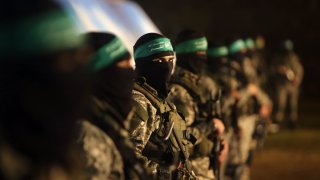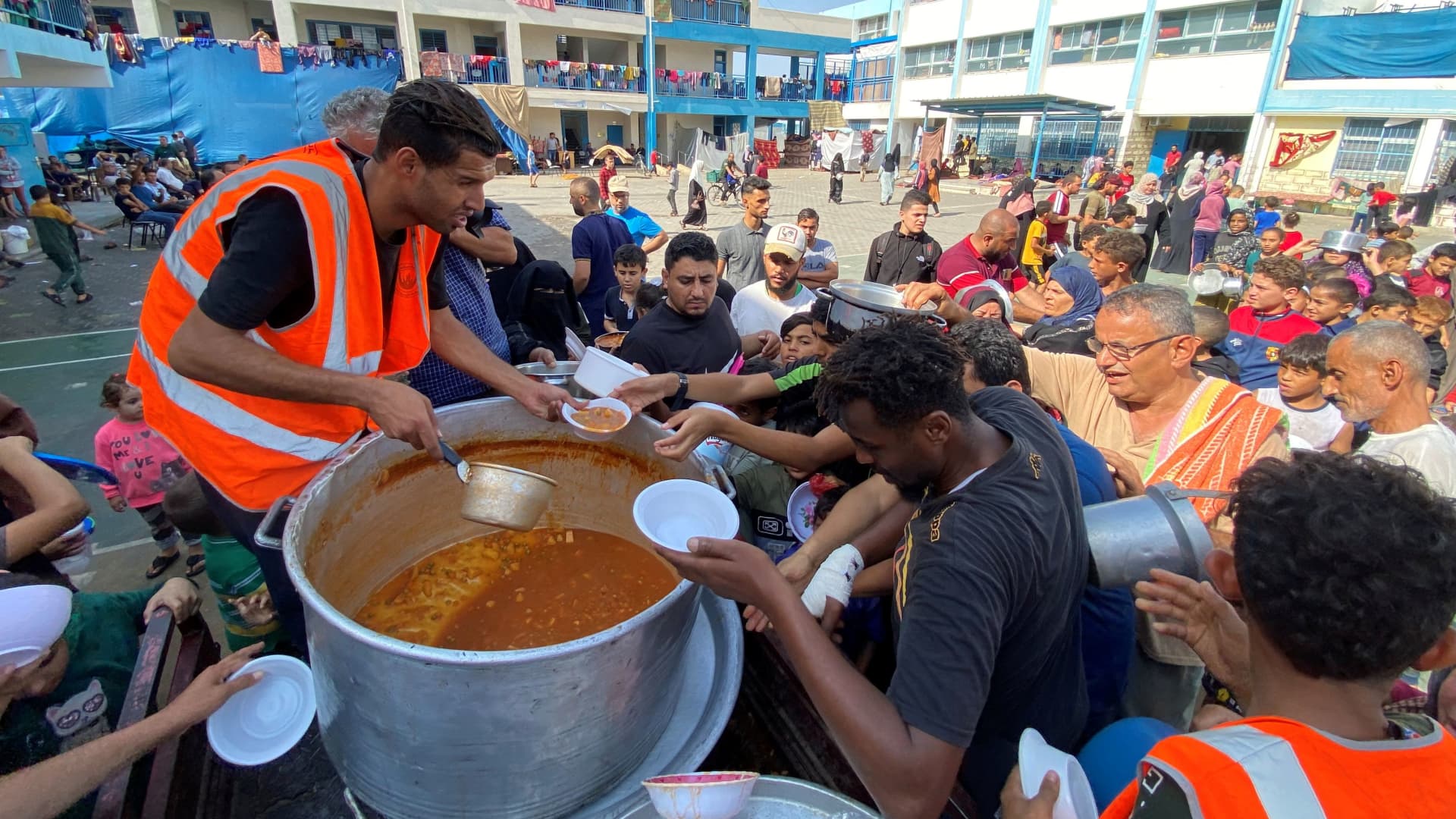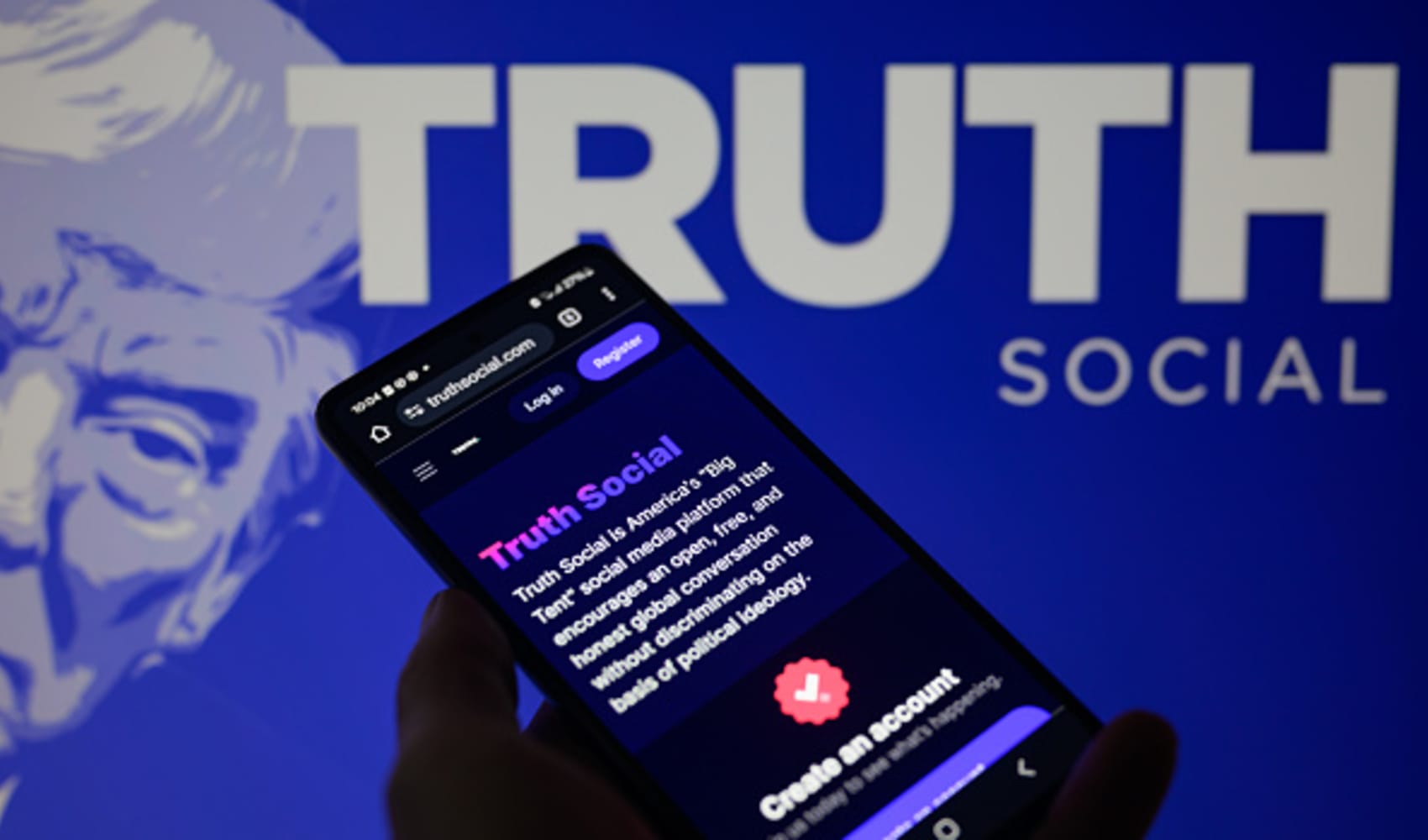
- The U.S. is ramping up efforts to cut off funding to Hamas after the group's terrorist attacks on Israel.
- It's a difficult and complicated effort, given the scope and intricacy of the Hamas funding network.
- Top Treasury official Brian Nelson spoke to CNBC about what the U.S. is doing.
The U.S. is urgently trying to cut off funding to Palestinian militant organization Hamas in the wake of its Oct. 7 terrorist attacks, which killed 1,400 Israelis and led to the capture of more than 200 people from Israel.
As part of this effort, while Israel hammers the Gaza Strip with airstrikes, the U.S. Treasury Department's under secretary for terrorism and financial intelligence met Wednesday with officials in Qatar.
"The U.S. is prepared to take unilateral action, but when we are strategically aligned with partners in this region, we have a great chance for success at a greater speed with more efficiency," the official, Brian Nelson, told CNBC in a phone interview shortly after the meeting.
Get a weekly recap of the latest San Francisco Bay Area housing news. Sign up for NBC Bay Area’s Housing Deconstructed newsletter.
Nelson had a similar message for officials in Saudi Arabia, with whom he met Tuesday. He wouldn't comment specifically on whom his office might focus on next, but the Treasury Department is hinting more action is on the way.
Still, it's a difficult and complicated effort, given the scope and intricacy of the Hamas funding network.
A week ago, the Treasury's Office of Foreign Assets Control, commonly known as OFAC, put sanctions on 10 institutions that fund Hamas from Gaza, the West Bank, Sudan, Turkey, Algeria and Qatar. Officials at the Treasury Department had been investigating these entities for years but didn't kick into gear until after the brazen attacks earlier this month.
Money Report
"After previous Hamas terror attacks you have big inflows to Hamas from across the globe and we wanted to act urgently to prevent that," Nelson said, pointing to the new urgency from the U.S.
Hamas' large funding network
U.S. officials say Hamas' fundraising apparatus is wide. The group, which controls Gaza, receives a large part of its money through charitable organizations that sometimes also legitimately funnel aid to help civilians and civil projects in Gaza.
"Making the distinction is often hard," said Juan Zarate, who was the first ever assistant secretary of the Treasury Department in charge of tracking and eliminating financing for terrorists.
Then-President George W. Bush appointed him in the wake of the Sept. 11, 2001, terrorist attacks on the U.S. Zarate is now the co-managing partner at K2 Strategies, where he advises clients, including governments in the Middle East, on everything from financial compliance to cybersecurity.
Speaking about Hamas, Zarate said, "over the years, they've been able to operate under a cloak of legitimacy in some circles as they also governed Gaza," which put some governments, including the U.S., in a position where there was less of an aggressive appetite to go after them.
"For now, that has changed," he said.

As for the U.S. not going after Hamas, Zarate said it was a question of resources, priorities and the assumption that "the Israeli government had it under control."
Beyond money from charitable organizations, Hamas also raises funds by taxing the people of Gaza on goods made in Gaza and goods imported from outside the strip.
Iran is another major funding source for Hamas, according to officials at the Treasury and State departments.
Since Oct. 7, supporters of Israel have urged the U.S. to more forcefully monitor and intercept oil exports from Iran that the current and past administrations have allowed to go through, despite sanctions. China has been a main recipient of Iranian oil exports.
The U.S. government also has been reluctant to cut off Iran's supply out of concern taking it off the market will boost oil prices, hurting the American and global economies.
Where the banking system comes in
Once OFAC puts an individual or institution on a designated terror funding list, it sends a flag to financial institutions across the world, including in the U.S. If a transaction is made in dollars, the path goes through an American bank.
"These additions to the list are made in real time," according to attorney Gary Osen, who has successfully sued terror financiers for aiding Hamas in the past, including the Arab Bank, based in Jordan.
When the banking system triggers an alert, it then goes to manual review.
"The system has not done enough to block money going to Hamas, not by a long shot" said Osen. He cited several organizations long suspected of funneling money to Hamas, including the Union of Good, which the U.S. Treasury Department designated as a terrorist fundraiser in 2008, a group the U.S. at that time said was "an organization created by Hamas leadership to transfer funds to the terrorist organization."
According to a 2019 lawsuit filed in U.S. Federal Court by Osen on behalf of the estate of an American man killed by Hamas in the West Bank, the Turkish non-profit IHH Humanitarian Relief Foundation has links to Hamas. The lawsuit states: "IHH has conducted much of its financial business with HAMAS through the Union of Good." The lawsuit was dismissed.
Separately, a bill with bipartisan U.S. congressional support and 23 co-sponsors from both parties accused IHH of being a member of the "Union of Good" after IHH's participation in the 2010 flotilla to Gaza, an attempt to deliver aid that was thwarted by the Israeli navy, sparking a violent confrontation at sea. The bill however stalled.
IHH is also listed as a direct sponsor of Hamas by Israel's National Bureau of Counter Terrorism Financing.
IHH did not respond to CNBC's requests for comment prior to the publication of this article. But in a statement six weeks later, an attorney for IHH denied all accusations and explained the foundation "works to prevent the violation of the basic rights and freedoms of people who suffer as a result of extreme poverty, war, natural disasters or similar calamities." As far as Israel's accusations that IHH raises money for Hamas, the letter said: "There are only baseless decisions issued by Israel as a result of political preferences."
As to why the U.S. has not designated IHH as a supporter of terrorism, Osen said: "There are likely diplomatic reasons why the U.S. government hasn't acted, including the organization's close ties to the Turkish government, a NATO ally. Governments have a lot of considerations to make and reasons to do nothing."
Don't miss these CNBC PRO stories:
- Want to retire in 5 years? Here's how to invest for it, according to the pros
- Morgan Stanley says the average stock is breaking down, S&P 500 to fall to 3,900 by year-end
- This highly profitable industry is booming as the population ages
- This chip stock is getting a ton of love from Wall Street, and it's not Nvidia
Clarification: This story was updated with additional detail on the IHH Humanitarian Relief Foundation and the Union of Good.






